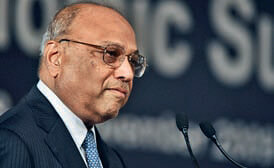Wisdom of the dead
We live in interesting times. Never has it been easier to plunder the wisdom of others. Marketers with issues, challenges, questions or theories need only join a relevant conversation, or start one, and the world can be their mentor.
There are downsides, of course. Some of the online participants may be the marketing equivalent of the pub bore; others will be juniors with egos out of proportion to their intellect. Not every blogger is a Rory Sutherland. Still, with a little patience and editing, you can filter out the less promising voices.
Perhaps, if you are lucky and sufficiently interesting yourself, your deliberations will attract comment from some of the greats in the marketing sub-disciplines: McCracken on culture and consumption; Jennifer Aaker on choice; Tufte on data visualisation; Belk on the meaning of possessions.
With a bit more time, you can follow longer conversations on webinars, TED talks or moderated discussions such as #HBRchat – where you could soon join Clayton Christensen, for example, on disruptive innovation.
Nevertheless, there is a long list of first-class minds that will not be joining any of these conversations, despite the wealth of their thinking and its relevance to our discipline: Bayes, Drucker, Levitt, Doyle, Baudrillard, Prahalad and Levi-Strauss, to name but a few.
It is not that they are churlish, reclusive or idle; they just happen to be dead.
This is the big drawback of the ‘conversation’ approach to personal development – it favours the living, with their focus on the here and now, and distracts us from the more enduring observations of those who have passed on.
What the dead lack in currency they make up for in depth. Accessing their work is an automatic exercise in editing: for it to have survived at all, beyond the championing of their living energies, it must have been unusually robust.
The hot metal of their ideas will have been tempered into the steel of their finished intellectual constructs by the force of sustained peer critique and exacting editorial standards.
Certainly, re-reading the closely-argued theories of, say, Erving Goffman or Denis Diderot feels qualitatively different from browsing the inchoate ideas that pour forth from even strong thinkers in a world forever in Beta.
That leads us to the other advantage of studying late masters: since most of their thinking predates recent trends and digital connection, it offers an earthier glimpse into the unchanging truths of our shared human nature.
Ironically, some of the best insights even into social connectivity predate the digital age – such as the late William H Whyte’s 1954 study of the distribution of air-conditioning brands in a Philadelphia suburb, which he showed could be explained only by ‘conversations over clothes lines and across backyard fences’.
For a deeper understanding of humanity, motivation, and the enduring tenets of our discipline, read the dead. They quarried to the core of their subject through force of intellect and the rigour of empirical observation. No Twitter, no Google, no shortcuts. They lived in interesting times.
The sociologist Thorstein Veblen (1857-1929) introduced us to ‘conspicuous consumption’, the visible expenditure of money on goods with the sole purpose of attaining or maintaining a certain social status. His book, The Theory of the Leisure Class, described how different approaches to consumption were what set classes apart, and heralded the arrival of the new middle class.
For today’s metric-mad marketers, it’s easy to take goals, targets and performance measurement as givens – but it was Peter Drucker (1909-2005) who pioneered them in the 50s. His ‘management by objectives’ concept brought businesses participative goal-setting and assessment.
Theodore Levitt (1925-2006) had a knack for coining popular phrases: widely credited for introducing the term ‘globalisation’, he also gave us the concept of ‘marketing myopia’ in his seminal 1960 paper. Urging marketers to raise their sights beyond simply selling what a firm produced, he was the first to propose starting with the consumer’s needs and working back from there.

We owe the idea of the ‘core competency’, which soon populated business schools and boardrooms alike, to CK Prahalad (1942-2010). Such competencies have three notable criteria: competitive inimitability, extendibility across products and markets, and value to the consumer.
